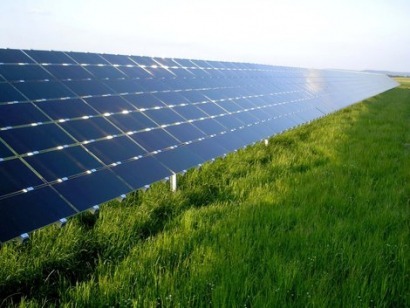
The report finds that governments and businesses can improve economic growth and reduce their carbon emissions together through new technological innovation and investment in infrastructure. The Global Commission on the Economy and Climate consists of 24 leaders from government, business, finance and economics in 19 countries. Leading research institutes from Brazil, China, Ethiopia, India, South Korea, the United Kingdom and United States have been conducting a year-long study advised by a panel of world-leading economists called The New Climate Economy and chaired by Lord Nicholas Stern.
“The New Climate Economy report refutes the idea that we must choose between fighting climate change or growing the world’s economy” said former President of Mexico Felipe Calderón, Chair of the Global Commission on the Economy and Climate. “That is a false dilemma. Today’s report details compelling evidence on how technological change is driving new opportunities to improve growth, create jobs, boost company profits and spur economic development. The report sends a clear message to government and private sector leaders: we can improve the economy and tackle climate change at the same time.”
The Better Growth, Better Climate: The New Climate Economy Report was presented to governments and business and finance leaders at a global launch event at the UN headquarters in New York City, attended by United Nations Secretary General Ban Ki-moon. The report was delivered just one week before the start of the UN Climate Summit.
It finds that over the next 15 years, around $90 million will be invested in infrastructure in the world’s cities, agriculture and energy systems, taking advantage of an unprecedented opportunity to drive low-carbon growth, thereby creating jobs, improving health, business productivity and quality of life. However, in order to achieve this growth governments and businesses need to improve resource efficiency, invest in good-quality infrastructure, and stimulate technological and business innovation.
The report also finds that competitive markets and consistent government policy signals are essential for businesses and investors to create low-carbon jobs and growth. Governments can unlock new investment and innovation by establishing a strong carbon price and a level playing field through an international climate agreement. The report sets out a detailed 10-point Global Action Plan of practical recommendations that can achieve greater prosperity and a safer climate at the same time. This will lead to net benefits to the economy even before the climate benefits are considered. If fully implemented, the recommendations could potentially achieve up to 90 percent of the emissions reductions needed by 2030 to avoid dangerous climate change, assuming decisive and early action is taken by economic decision-makers.
The commission will discuss the report over the next six months with decision-makers across the world, aiming to stimulate stronger action to drive growth and emissions reductions together.
For additional information:

